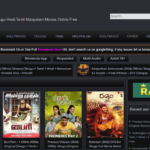Optimizing Fleet Performance with Strategic Maintenance
- 1 Preventive Maintenance: The Proactive Approach
- 1.1 Data-Driven Decision Making
- 1.2 Training and Empowering Drivers
- 1.3 Quality Parts and Supplies
- 1.4 Integrating Dispatch Maintenance and Management
- 1.5 Adopting Sustainable Practices
- 1.6 Regular Audits and Compliance
- 1.7 Leveraging Mobile Maintenance
- 1.8 Adopting a Lifecycle Management Perspective
- 1.9 Investing in Maintenance Facilities and Staff
- 2 Conclusion
In the fast-paced world of logistics and transportation, maintaining a fleet that is both reliable and efficient stands as a cornerstone for success. The strategic approach to fleet maintenance ensures the vehicles’ longevity and significantly enhances operational productivity. This article delves into the essential strategies for effective fleet maintenance, which can help companies minimize downtime, reduce costs, and maintain a competitive edge in the market.
Preventive Maintenance: The Proactive Approach

Preventive maintenance is the scheduled care of vehicles to prevent potential problems before they occur. This strategy is akin to a regular health check-up; it involves inspecting, detecting, and correcting minor issues before they escalate into major, costly repairs. By following the manufacturer’s recommended service intervals and keeping a close eye on the vehicle’s key components, such as brakes, tires, and engines, fleet operators can ensure that their vehicles remain in top condition.
Data-Driven Decision Making
In today’s digital age, data is invaluable. For fleet maintenance, using data analytics can lead to more informed decisions. Telematics systems can provide real-time data on vehicle performance, allowing fleet managers to monitor everything from vehicle location to driving patterns. Furthermore, telematics systems can support advanced fuel management with the support of a shell fuel card. This data not only helps schedule maintenance tasks but also identifies trends that may indicate underlying issues with the vehicles.
Training and Empowering Drivers
Drivers are the first line of defence when it comes to fleet maintenance. They are the ones who spend the most time with the vehicles and are likely to notice any irregularities. Providing drivers with proper training on vehicle handling and essential maintenance can lead to the early detection of issues that might otherwise go unnoticed until they become serious. Encouraging drivers to report any faults immediately can significantly reduce the risk of vehicle breakdowns and the need for urgent repairs.
Quality Parts and Supplies

Using high-quality replacement parts can extend the life of fleet vehicles. While it might be tempting to opt for cheaper alternatives, investing in quality parts can lead to long-term savings by reducing the frequency of repairs. Additionally, keeping a well-managed inventory of essential parts and supplies can prevent delays in maintenance, ensuring that vehicles are back on the road as quickly as possible.
Integrating Dispatch Maintenance and Management
Effective fleet maintenance is not an isolated process; it is deeply interconnected with other aspects of fleet operations, including dispatch. By ensuring that vehicles are correctly maintained, dispatchers can rely on the availability of the fleet for planning and executing transport assignments. Conversely, efficient dispatch can contribute to maintenance strategies by optimizing routes that reduce vehicle wear and tear and scheduling jobs to allow regular maintenance windows.
Adopting Sustainable Practices
Sustainability is becoming increasingly crucial in fleet management. More companies are now looking at how they can reduce their environmental impact. This includes adopting more fuel-efficient driving techniques, using alternative fuels, and keeping vehicles well-maintained to minimize emissions. Sustainable practices benefit the environment and can lead to cost savings and improved public perception of the company.
Regular Audits and Compliance

Regular maintenance records and practices audits help ensure the fleet complies with all relevant laws and regulations. Compliance is critical, not just for legal reasons but also for safety. Regular audits can help identify any gaps in the maintenance strategy and provide an opportunity for continuous improvement.
Leveraging Mobile Maintenance
Mobile maintenance emerges as a game-changer in the quest for optimal fleet efficiency. This strategy involves sending maintenance crews directly to the vehicles, whether on-site or in the field, reducing the need for cars to enter the shop. This saves valuable time and reduces the logistical challenges of transporting cars back and forth. Mobile maintenance units can perform various services, from basic preventative checks to more complex repairs, ensuring that vehicles spend more time on the road and less time in the garage.
Adopting a Lifecycle Management Perspective
A comprehensive fleet maintenance strategy also involves a lifecycle management approach. This means looking beyond the day-to-day upkeep and considering the entire lifespan of each vehicle. By understanding the typical lifecycle of their cars, fleet managers can make more informed decisions about when to invest in repairs, when to overhaul components, and when it’s time to retire a vehicle from the fleet. This lifecycle perspective helps optimize the fleet composition over time, ensuring that the fleet evolves in line with the company’s operational needs and technological advancements.
Investing in Maintenance Facilities and Staff
Finally, the importance of investing in the maintenance facilities and their staff cannot be overstressed. State-of-the-art maintenance facilities with the latest tools and technology enable more efficient and effective repairs. Moreover, investing in ongoing training and certification for maintenance staff ensures they are up-to-date with the latest vehicle technologies and maintenance techniques. A skilled and knowledgeable maintenance team is the backbone of any successful fleet maintenance strategy, capable of addressing issues swiftly and ensuring that the fleet’s wheels keep turning.
Conclusion
In conclusion, a strategic approach to fleet maintenance is vital for the smooth operation of any transportation or logistics company. Companies can ensure their fleet operates at peak efficiency by implementing a robust preventive maintenance program, leveraging data for informed decision-making, empowering drivers, investing in quality parts, and integrating maintenance with dispatch management. Adopting sustainable practices and ensuring compliance through regular audits can further enhance the fleet’s performance. Ultimately, these strategies contribute to the longevity and reliability of the fleet and the business’s overall success and profitability. With a well-maintained fleet, companies can deliver exceptional service to their customers, day in and day out.


















